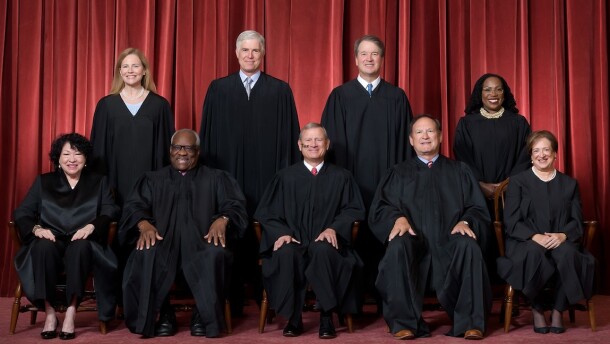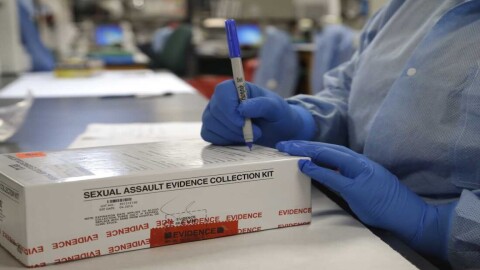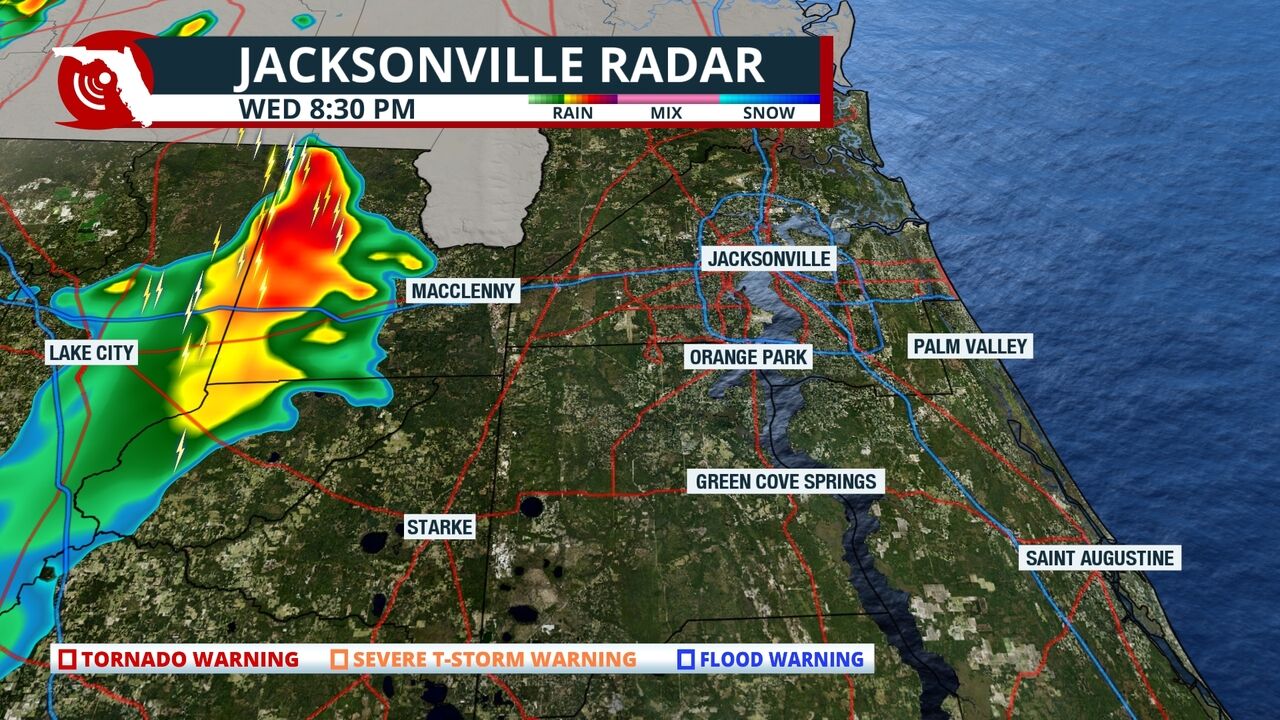Today's Radio Schedule
Latest National Newscast from NPR News
NPR News: 07-29-2024 3PM EDT
NPR News: 07-29-2024 3PM EDTLearn more about sponsor message choices: podcastchoices.com/adchoicesNPR Privacy Policy
Dive into the heart of Northeast Florida with First Coast Connect . This captivating weekday call-in program brings you face-to-face with the region's movers and shakers, from community leaders and local artists to standout event planners. Engage in vibrant discussions and delve into the week's hottest topics with our exciting Friday Roundtable, featuring a dynamic mix of local media personalities and civic luminaries. Tune in, connect and become part of the community conversation.
Weekdays live at 9 a.m.; Rebroadcast at 8 p.m.
Weekdays live at 9 a.m.; Rebroadcast at 8 p.m.
- Call us: 1 (904) 549-2937
(Note: This line is only active during the program, 9 -10 a.m.) - Email: firstcoastconnect@wjct.org
- Twitter: Tag @FCConair on Twitter
- Facebook: Comment on facebook.com/FCConair
What's Health Got to Do with It? is an engaging weekly talk show hosted by Dr. Joe Sirven, a renowned physician and medical journalist. The show navigates the intricacies of the healthcare system, offering insight into treatment access, insurance coverage, and maintaining good health. Each episode, centered around a specific topic, dives into compelling healthcare stories and explores solutions for healthcare challenges. The program encourages active listener participation, fostering a community that is locally-focused and solution-driven on healthcare issues.
Saturdays at 4 p.m. and Sundays at 9 p.m.
Saturdays at 4 p.m. and Sundays at 9 p.m.
What's Health Got to Do with It?
On this week’s program, could vision and cognitive changes be normal signs of aging or symptoms of something more serious? Then, the science behind longevity.
What's Health Got to Do with It?
What's Health Got to Do with It?
What's Health Got to Do with It?
Hear what Florida is talking about each week with newsmakers and journalists discussing issues defining the Sunshine State, hosted by Tom Hudson.
This show is co-produced by WLRN in Miami and WUSF in Tampa.
Ways To Connect
This show is co-produced by WLRN in Miami and WUSF in Tampa.
Ways To Connect
- Call us: 1 (305) 995-1800
- Twitter: Tag @FloridaRoundup
This week on The Florida Roundup, we spoke about the new immigrant detention center in the Everglades with Rep. Anna Eskamani (00:00) and spoke about the contractors who have been hired to operate the facility with Bob Norman of the Florida Trident (09:20). Then, we were joined by former state Sen. Jeff Brandes about property insurance reform (19:14). And later, a roundup of news from across the state including an outlook for the 2025 Atlantic hurricane season (29:18), an update on Florida’s ban on homeless encampments six months out (41:22), and the battle between basketball and pickleball in Fort Lauderdale (43:12).
Immerse yourself in the rhythm of Jacksonville with the Jacksonville Music Experience (JME). Brought to you by WJCT Public Media, JME is your passport to an eclectic musical journey. From unique radio stations to curated playlists, live events, and insider insights - discover, explore and fall in love with Jacksonville's dynamic music scene through JME.
Reporters from public radio stations across the state bring you timely news and information from around Florida. Whether it's legislative maneuvers, the economy, environmental issues, tourism, business, or the arts, Capital Report provides information on issues that affect the lives of everyday Floridians.You can also subscribe to Capital Report as a podcast on Apple, Spotify, and Google.
-
On this week's program: One of Florida’s most savvy public revenue hawks thinks the president’s tariff-o-rama is bad. At least in the near term; The State of Florida seems destined to be a major lockup point for immigrants taken into custody for whatever reason; For the time being at least, there will be no changes to how Florida citizens can propose changes to the state’s constitution; There’s good news in Florida’s new budget for advocates of more affordable housing; With federal clean energy incentives soon to be history, the question is can renewable energy enterprise survive in the Sunshine State? A new law allowing privately-operated charter schools to share space with traditional public schools is already causing some controversy; Florida boaters – and motorists – are being urged to slow it down if they have to travel on flooded streets. The impact on nearby properties can be huge; And it seems life just gets tougher and tougher for what used to be a vibrant variety of fish in the seas around Florida.
-
On tonight’s program: That big new immigrant detention facility in the Everglades is attracting lots of attention. Both negative and positive; The attention is also boosting the political fortunes of Florida’s attorney general; How might proposed changes in federal immigration policy affect the many Haitians in Florida who have been here – legally – for years?; The latest figures show Florida’s abortion restrictions are reducing the number of such procedures; A Florida school district wrestles with the spectre of artificial intelligence; And With a public water fluoride ban now the law in Florida, individual dentists are racing to administer their own treatment. Especially for kids.
-
On tonight's program: Governor Ron DeSantis has signed legislation to address rising condo fees after efforts to make the buildings safer caused some to worry they couldn’t afford to stay in their homes; The victims of the Surfside condo collapse are remembered; Florida is on track to tie the record for the most executions in a year since 1976; We learn about how to ensure cooler heads prevail in a world that seems to reward hot takes; A project is underway to build a new overpass specifically for animals; And environmentalists are pushing back against habitat loss as a way to help protect Florida’s shore birds.
-
On tonight’s program: We’ll examine some of the most significant things to come out of this year’s Florida Legislative Session; After a victory at the Department of Environmental Protection, opponents of fossil fuel exploration in Northwest Florida hope a bill ban passes gubernatorial muster; Florida has its own Emancipation Day on May 20th, but it also observes the national end of enslavement celebration called “Juneteenth”; As evacuation takes place in Israel, we check out the Florida connection; There’s a new and exciting screening tool for cervical cancer. We’ll find out more about it; And we get an update on how the issue of “name, image and likeness” profit sharing is impacting collegiate sports.
-
On tonight’s program: Wonder of wonders, it looks like a budget deal has been between the Florida House and Senate; But some items in that budget could be considerably less. Can you spell education?; If Medicaid money is cut by the federal government, it may not only affect those folks who are on Medicaid; We meet a Florida family that could be facing separation under current immigration policy; And if you plan on protesting this weekend, the watchwords are, “be safe, be careful.”
-
On tonight’s program: The race for Florida governor heats up as an “R” turned “D” jumps into the contest; We have a conversation with the ever-outspoken John Morgan. Who thinks a third-party candidate CAN win the Florida governor’s race. Especially if his name is Morgan; Florida kids on the autism spectrum are expected to get a lot of help from a newly signed law; Why is there such a stubborn shortage of nurses? One nurse educator says part of the problem lies with the students; And we hear from some dental professionals who fear Florida’s new law banning fluoride in public water supplies will lead to a big jump in kids’ cavities.
Florida Frontiers: The Weekly Radio Magazine of the Florida Historical Society is a combination of interview segments and produced features covering history-based events, exhibitions, activities, places and people in Florida. Join host Ben Brotemarkle as he explores the relevance of Florida history to contemporary society, and promotes awareness of heritage and culture tourism options in the state.
-
SEGMENTS | Gilded Age Hotels at Mineral Springs | Key West as the American Gibraltar | Tallahassee at 200
-
SEGMENTS | Spires in The Sun | Draining The Everglades | Wakulla Springs Archaeology Update
-
SEGMENTS | Letters From Floridians at War | African American Businesspeople in Jacksonville | The Mala Compra and Bulow Plantations
-
SEGMENTS | The American Revolution in Florida | Florida as an American Borderland | Clearwater Lawn Bowling Club at 100
-
SEGMENTS | The Freedom Project | The ERA in Florida | American Origins in Spanish Florida
-
SEGMENTS | Remembering T.D. Allman | The West Florida Rebellion | William Pope Duval and Tallahassee
Discover Jacksonville like never before with Jacksonville Today, a nonprofit local digital journalism service from WJCT Public Media. With a daily five-minute read, stay updated on the city's top news, events, and engaging opinion pieces. Beyond news, it's your doorway to actively participate in the community. Get ready to experience Jacksonville, one email at a time.
NPR News is your go-to destination for reliable national news, delivering comprehensive reporting, thoughtful analysis, and engaging storytelling. With a commitment to accuracy and balanced coverage, NPR News keeps you informed about the latest national happenings, offering insights and perspectives that go beyond surface-level news.
-
Former national security adviser Mike Waltz defended his use of the encrypted Signal app during a Senate confirmation hearings Tuesday on his nomination as President Trump's ambassador to the U.N.
-
The word fills an important gap in our language, but it was once stigmatized. The story of "y'all" also includes powerful cultural forces, from hip-hop to ideas of welcoming inclusivity.
-
Federal tax credits for rooftop solar, heat pumps and other energy-efficient technologies are going away at the end of the year. Here's what consumers should know.
-
The small plastic instrument has long been the go-to instrument in elementary schools. But it is capable of so much more than "Hot Cross Buns."
-
Wimberley, Texas, was the site of a devastating flash flood on Memorial Day weekend in 2015. Now, 10 years later, the town has rebuilt with such floods in mind — but still feels the emotional effects.
-
Threats to $140 million in funds for public health departments battling fentanyl overdoses comes as some experts see the addiction safety net unraveling.
Every weekday for over three decades, NPR's Morning Edition has taken listeners around the country and the world with two hours of multi-faceted stories and commentaries that inform challenge and occasionally amuse. Morning Edition is the most listened-to news radio program in the country.
Weekdays 5:00 a.m. to 9 a.m.
Weekdays 5:00 a.m. to 9 a.m.
-
President Trump's tariffs are starting to show up in the prices that consumers pay. That contributed to an uptick in inflation last month and will make the Fed cautious about cutting interest rates.
-
Inflation picked up in June as tariffs begin to bite, how QAnon conspiracy theorists are reacting to Trump's handling of the Epstein case, Senate to debate cuts to public broadcasting and foreign aid.
-
NPR speaks with scholar and author Irene Vega about her detailed analysis of the principles that shape how U.S. immigration agents understand and carry out their professional responsibilities.
-
Several states are now recovering from recent severe flash floods. How out of the ordinary are these intense cloudbursts and flash floods? Is it getting worse, and what role is climate change playing?
-
Trade organizations welcomed an announcement by President Trump two weeks ago of a trade deal with Vietnam. Now, exporters in Vietnam say they are still confused by the agreement.
-
The snarky indie-rock band Wet Leg earned two Grammy awards for their debut album. NPR's Sarah McCammon speaks with singer Rhian Teasdale about their second album, "moisturizer."
In-depth reporting has transformed the way listeners understand current events and view the world. Every weekday, hear two hours of breaking news mixed with compelling analysis, insightful commentaries, interviews, and special - sometimes quirky - features.
Weekdays 4:00 p.m. to 6 p.m.
Weekdays 4:00 p.m. to 6 p.m.
-
Heavy rain caused flash flooding in parts of the northeast on Monday. Climate change is fueling more intense rainstorms that drop more water in shorter periods of time.
-
NPR's Ailsa Chang talks with Michael Petrilli, head of the education policy thinktank Thomas B. Fordham Institute, about the Trump administration's efforts to dismantle the Education Department.
-
NPR's Mary Louise Kelly speaks to author and journalist Tim Weiner about his new book, The Mission: The CIA in the 21st Century.
-
On Wild Card, guests answer the kinds of questions we often think about but don't talk about. Celine Song shares a story from her childhood about the early signs that she'd become a movie director.
-
The squirting cucumber doesn't get its name for nothing. And it's why her supervisor, who studies biomechanics, was so excited about them. Gorges searched for the plant on YouTube, and turned up this David Attenborough video.
-
The Senate considers the rescissions package that would strip $9.4 billion for public boradcasting and foreign aid.
Marketplace, hosted by the charismatic Kai Ryssdal and produced by American Public Media (APM), is an influential and informative radio program that delivers a fresh perspective on the economy, business, and finance.
-
The good news? The Commerce Department says personal income and consumption were up in June. Bad news is savings didn’t rise with ’em. In fact, high interest rates and high prices have battered the personal savings rate down to an almost two-year low, leaving many households without a financial security cushion. In this episode, we’ll also get into why national manufacturing growth depends on where you are, and Boston is incentivizing office to residential real estate conversions.
-
New gross domestic product data just came in — GDP grew a healthy 2.8% annually in the second quarter, better than predicted. Meanwhile, consumers are focused on buying essentials and credit card debt is growing. In this episode, we’ll examine why GDP is strong while many everyday people feel squeezed for cash. Plus: New real estate broker fee rules take effect next month and the number of Americans who predict they’ll retire young is up.
-
The last time Congress raised the federal minimum wage, it went up 70 cents — from $6.55 to $7.25 an hour. That was in 2009. Today, we’ll get into why there hasn’t been a successful push to boost it since then and who suffers as a result. Plus, officials in China promise major tax reform, apartment vacancies in Sun Belt cities rise and the Federal Reserve keeps an eye on GDP estimates.
-
“Act your wage,” “coffee badging,” “ghost jobs” — the internet is always vomiting up new workplace phrases. You may even use some of them to describe the bizarre job market of the past few years. So when popular work slang shifts from silly — “lazy girl jobs” — to grim — “quiet cutting” — are there hints about where the labor market is headed? Also in this episode: Tech firms ditch user counts, car sales motor on despite high costs and educators get educated about jobs at the Port of Baltimore.
-
In the face of major news, some say the bond market can signal what comes next economically. But so far, bond yields don’t seem to be reacting to Biden’s dropping out of the presidential race. In this episode, what the crystal ball of the economy does care about in regard to elections. Plus, business investments outpace GDP gains, Nvidia employees cash in on the chipmaker’s hockey stick-shaped earnings growth and Friday’s CrowdStrike crash reveals a common cybersecurity weakness.





































